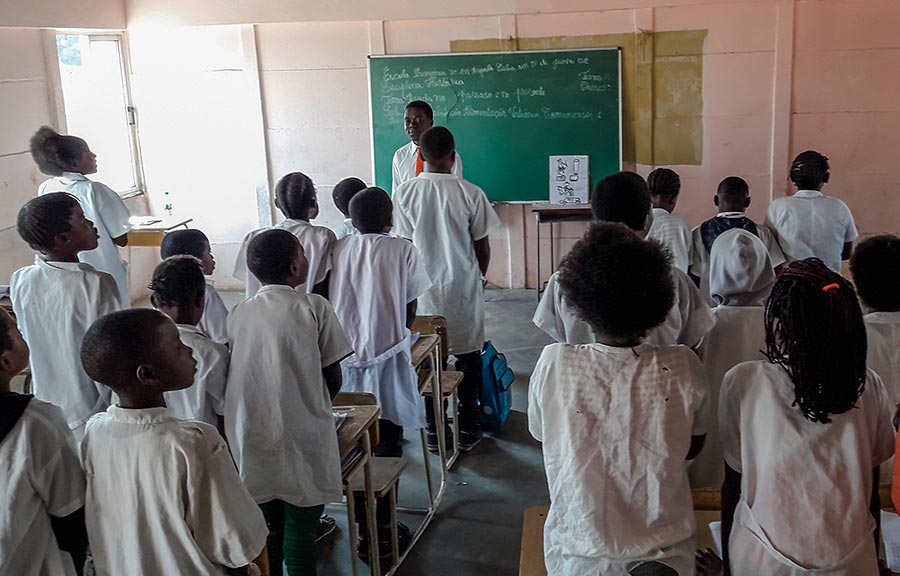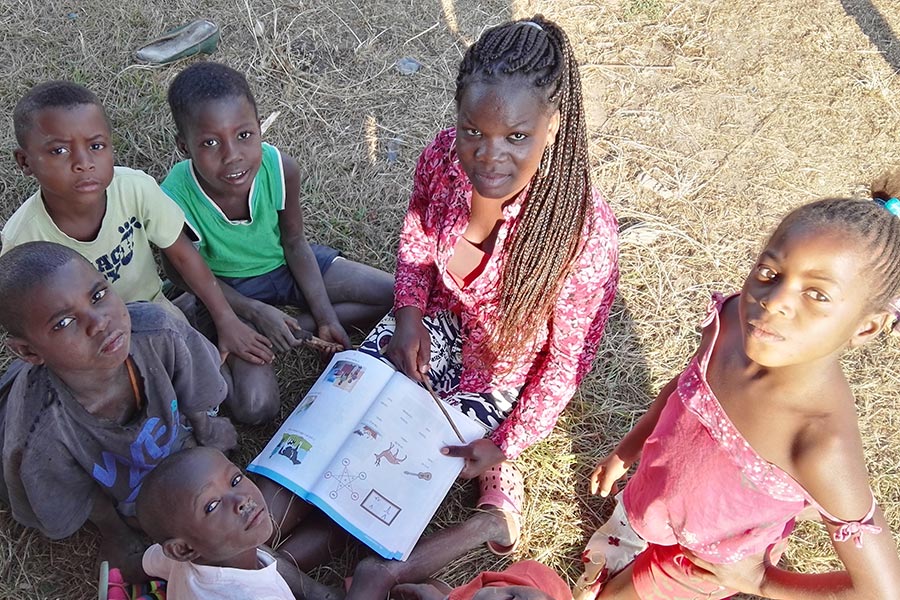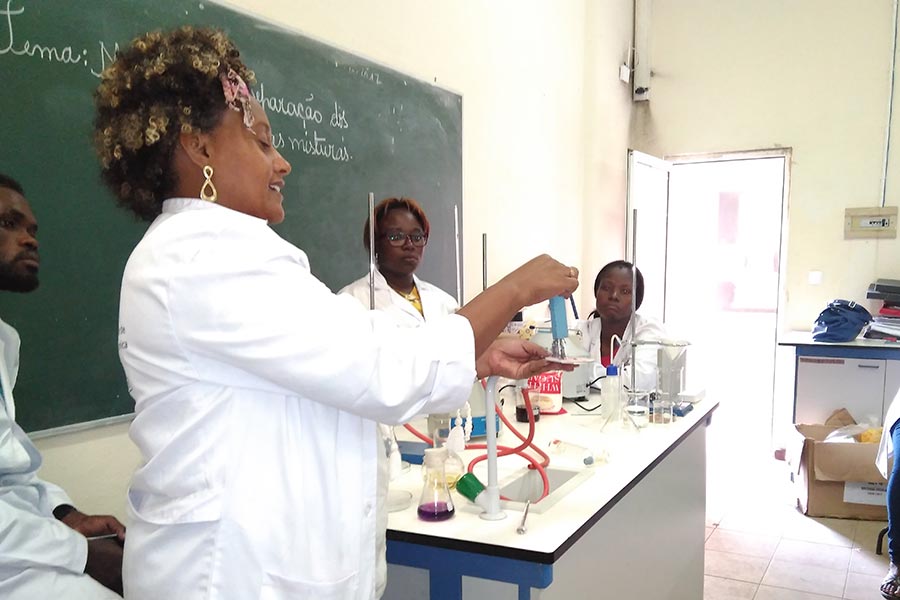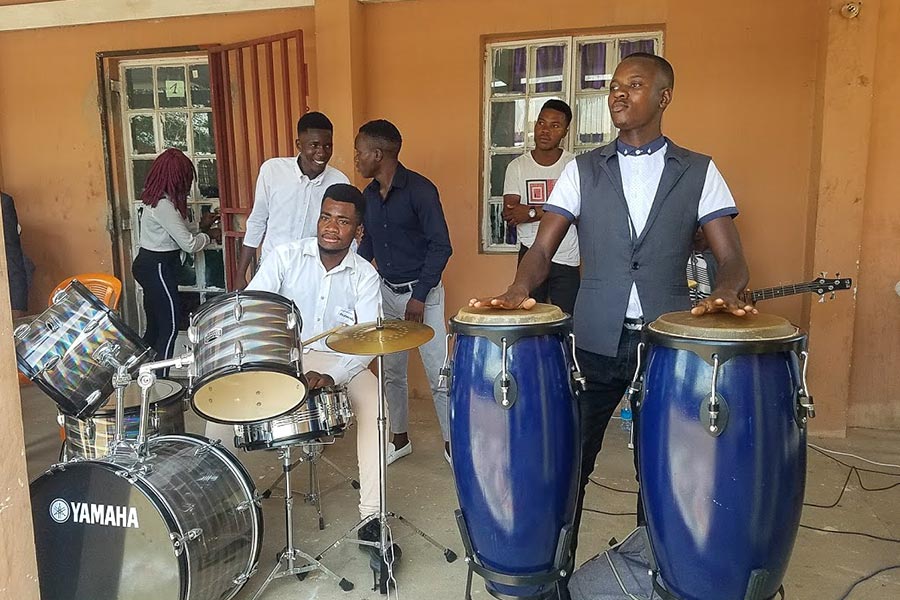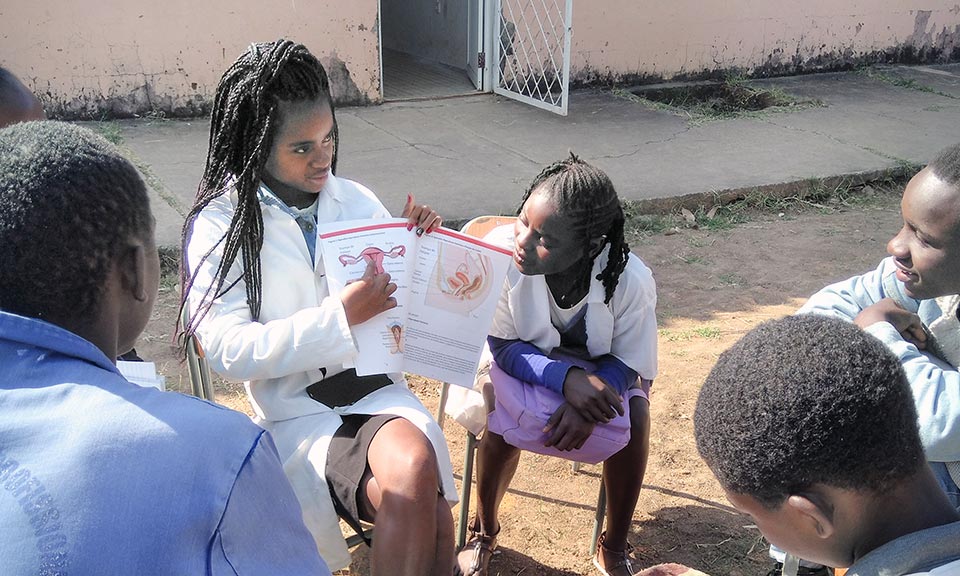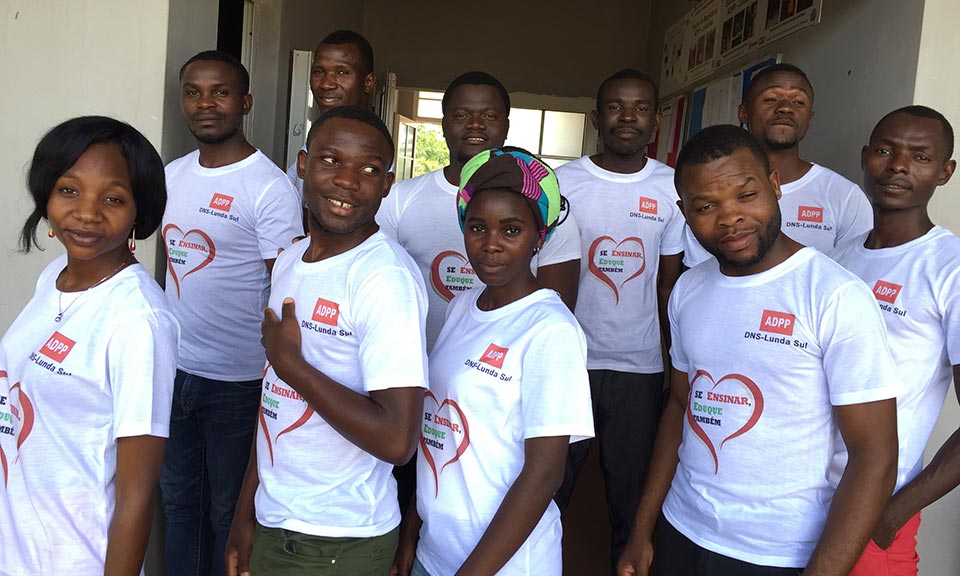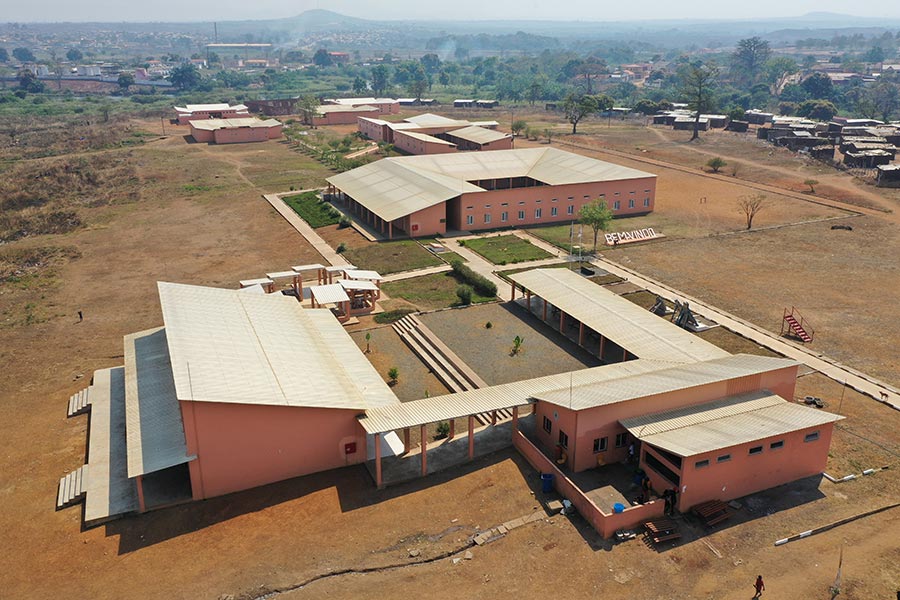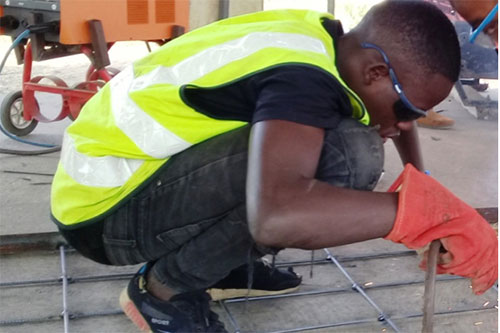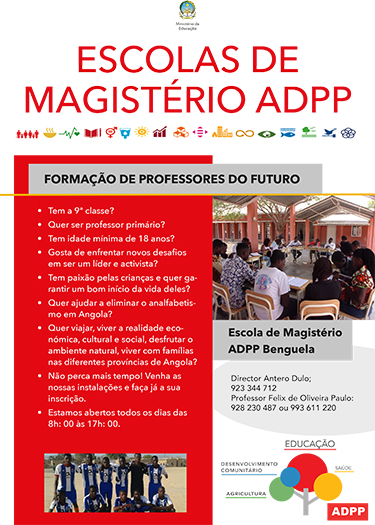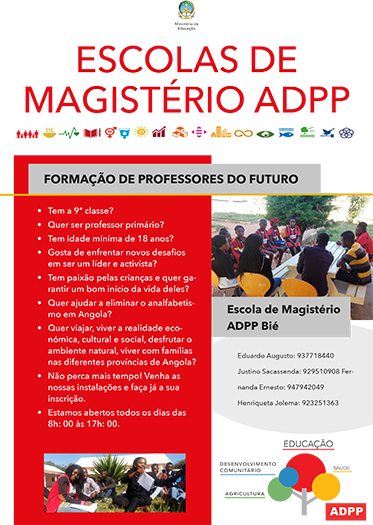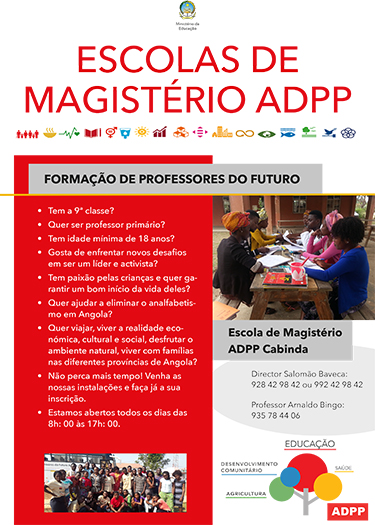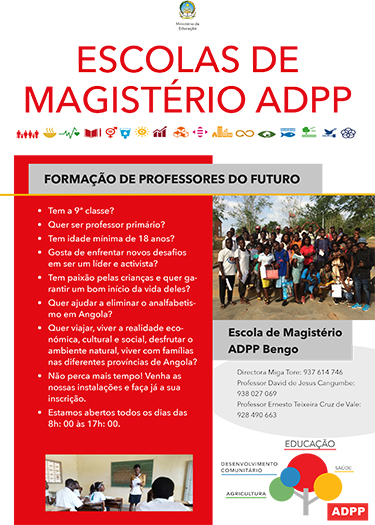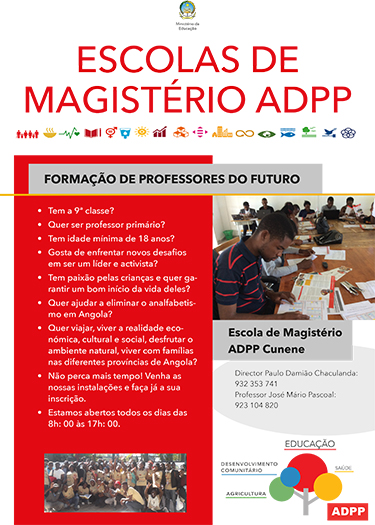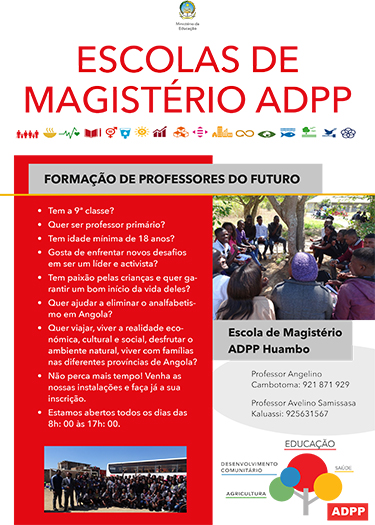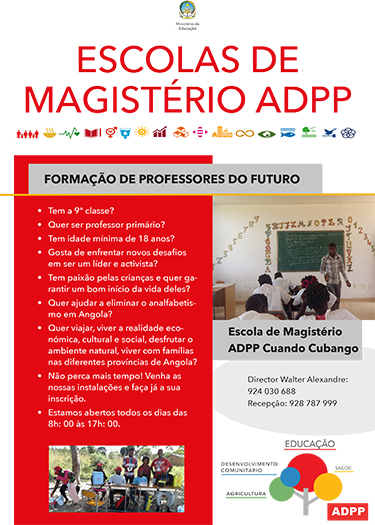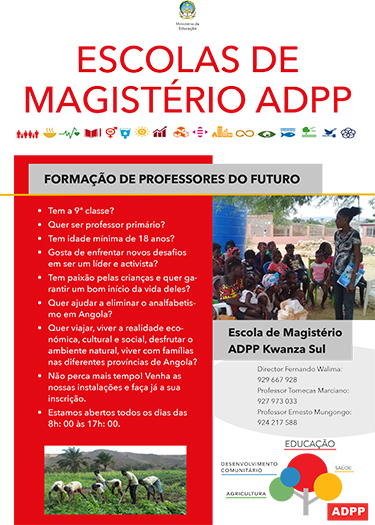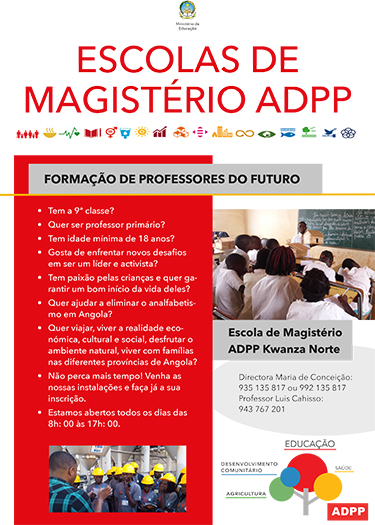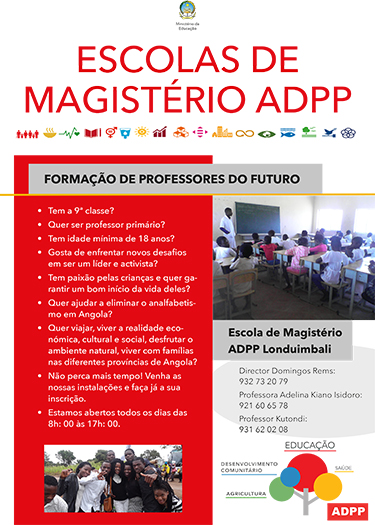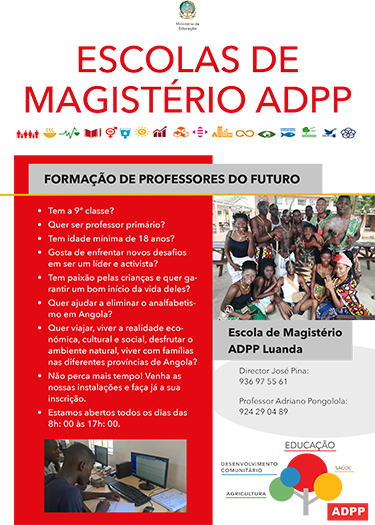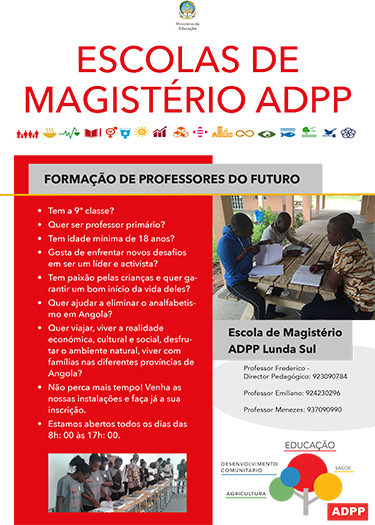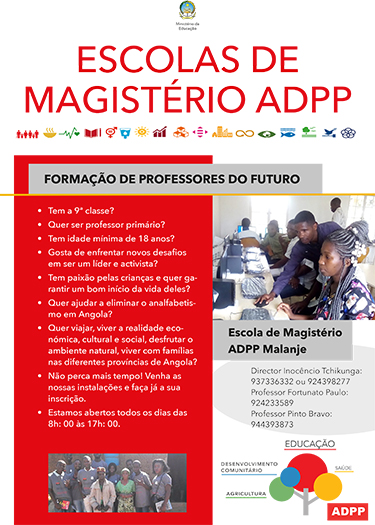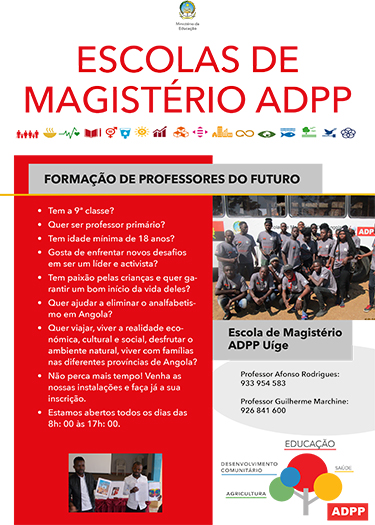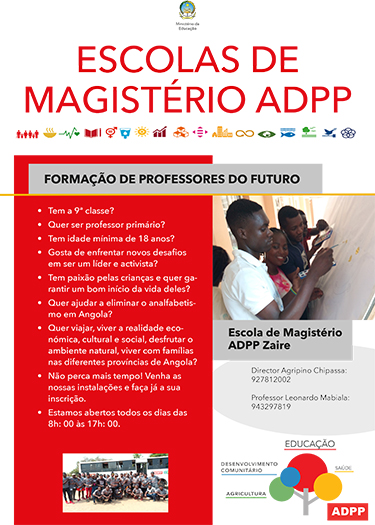ADPP’s TEACHER TRAINING SCHOOLS provide a broad education in terms of attitudes, capacities, general knowledge and practical skills. Students become professional teachers who strive to ensure no child is left behind.
Students have to be competent in all subjects that form the national primary school curriculum, as well as have a thorough knowledge of the methods of teaching each subject, be it mathematics or physical education, geography or natural sciences.
Portuguese and maths are central subjects, as the teachers of the future become crucial in ensuring that all children learn to read, write and do maths.
Academic competence on its own, however, is not sufficient. To become “Another Kind of Teacher”, the kind of exceptional teacher that the country needs, capable of dealing with the broadest possible range of situations while helping each and every pupil achieve his or her potential, requires an equally exceptional set of skills, abilities and personal qualities.
The teacher training programme promotes and enhances such attributes, through a combination of studies, courses and experiences. The way in which the programme is conceived plays an important role in the outcome. For example, the students are not simple receivers of information, but have to research topics for themselves, experimenting, observing, sharing ideas and asking questions.
They get involved, learn to look after one another, push boundaries, develop hidden talents, become community-minded and vocal, all of which is developed as they work their way through the three-year course.
Sport and the arts, including theatre, are important components at ADPP Teacher Training Schools. Beyond personal benefits, they have many functions in terms of teamwork, cooperation, social development, understanding, breaking barriers and personal achievement.
ADPP schools organize tournaments, matches and sporting events largely for primary pupils, and entertainment and theatre for young people and adults, filling a gap in the provision of such services.
Teacher training schools
Students training
Graduates since 1995
ADPP provides IN-SERVICE TRAINING to improve teachers’ professional skills and personal capacity to provide quality, child-centred education.
Many primary school teachers in rural areas have little or no formal pedagogic training, work in often ifficult circumstances, and welcome every opportunity for professional development.
Even teachers who do have formal training lack the capacity, experience or inspiration to deliver relevant, practical lessons. This is leaving thousands of children without quality education and at a serious disadvantage with respect to preparing for the future.
ADPP’s programme of Pedagogical Sessions provides instruction in and debate about topics of relevance for modern teaching. Tutors introduce themes after which participating teachers work in groups or individually on the theme and then hold debates in plenum.
Week by week, the teachers participate in sessions about their role at school, in the community and in the lives of their pupils, about the nature of children and what learning is about. They begin to plan their lessons, introducing practical activities, workshops, excursions and topics of relevance about the world today. Health, nutrition, culture, discipline, administration and collaboration with parents all feature in the sessions.
All themes are immediately transferable to the classroom, promoting a child-friendly environment where the pupils become active and interested participants.
SCIENCE, TECHNOLOGY, ENGINEERING AND MATHS (STEM) FOR TEACHERS Learning by doing is key to helping understand physics, chemistry and mathematics so focus is on experiments which can be carried out with locally available materials in this BP financed project which is benefitting 5,400 pupils.
JIMBUETETE: ART, MUSIC AND PHYSICAL EDUCATION
1200 primary school pupils will receive lessons in art, music and capoeira thanks to a special programme at the Teacher Training School Zaire. Trainee teachers formed a choir and a band,
learned to play musical instruments and to make simple instruments, studied the martial art capoeira that combines dance, acrobatics and music, and developed ideas for art lessons. Local schools are also benefitting from materials and equipment provided by the project, financed by LNG Angola.
MENSTRUAL HEALTH
Trainee teachers in three provinces are working to promote a greater understanding of menstrual health management among girls, their parents, teachers and fellow pupils,
while polytechnic students are trained as peer educators. The objectives of the programme, financed by AmplifyChange, is to help change social norms concerning menstruation.
ADPP GRADUATES NETWORK
ADPP graduates are to be found in thousands of schools and education departments. Individually, each graduate is a force to be reckoned with. Collectively, they are capable of driving pedagogic development and improving the quality of education in primary schools beyond expectations.
EDUCATION CENTRE IN CUANZA NORTE
The school centre in Cuanza Norte was established in a partnership between the Ministry of Education and KOICA, the Korean Development Agency, with ADPP as implementer. Originally comprising a teacher training school and a polytechnic school, the project has since expanded to include in-service training of teachers and adult literacy, living up to it aim of providing quality education for all.
TIMELINE
GLOBAL GOALS
Free Primary and Secondary Education
Equal Access to Quality Pre-Primary Education
Equal Access to Affordable Technical, Vocational and Higher Education
Increase the Number of People with Relevant Skills for Financial Success
No Discrimination in Education
Universal Literacy and Numeracy
Education for Sustainable Development and Global Citizenship
Build and upgrade inclusive and safe schools
STORIES
Hipólito Lembe Chivulo, EPP Cabinda
ENROLMENT PAMPHLETS (PT)


